|
Books Should Be Free Loyal Books Free Public Domain Audiobooks & eBook Downloads |
|
|
Books Should Be Free Loyal Books Free Public Domain Audiobooks & eBook Downloads |
|
History Books |
|---|
|
Book type:
Sort by:
View by:
|
By: Anthony Trollope (1815-1882) | |
|---|---|
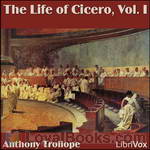 The Life of Cicero
The Life of Cicero
Marcus Tullius Cicero (106-43BC) was an orator, statesman, philosopher and prolific correspondent, who rose as a ‘new man’ in Rome in the turbulent last years of its republican government. Anthony Trollope, best known as a novelist, admired Cicero greatly and wrote this biography late in life in order to argue his virtues against authors who had granted him literary greatness but questioned his strength as a politician and as a man. He takes a personal approach, affording us an insight into his own mind and times as well as those of his subject... | |
By: Niccolò Machiavelli (1469-1527) | |
|---|---|
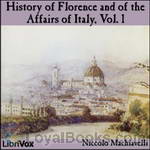 History of Florence and of the Affairs of Italy
History of Florence and of the Affairs of Italy
History of Florence and of the Affairs of Italy is an historical account by Niccolò Machiavelli. Toward the end of 1520, the Cardinal Giulio of Medici, later Pope Clement VII, offered Machiavelli the appointment to write a history of Florence. Although Machiavelli was reluctant to accept, accepting was his only way to regain the good graces of the Medici who had regained power and were in a position to offer him employment and protection. Doing the history also provided a way for Machiavelli’s views to become the “official” history of Florentine and Italian affairs. Once completed, the work was presented officially to Giulio, now Pope, in May of 1526. | |
By: Walt Whitman (1819-1892) | |
|---|---|
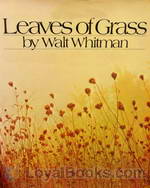 Leaves of Grass
Leaves of Grass
Nearly 160 years after it was first published, Walt Whitman's Leaves of Grass continues to inspire, enthrall and educate generations of readers. This collection of poems serves as a vehicle for Whitman's philosophy, ideals, love of nature and mystical musings and it subsequently became one of the corner stones of American literature. Whitman was inspired to write Leaves of Grass based on Ralph Waldo Emerson's clarion call for a truly American poet who would tell of its glories, virtues and vices... | |
By: Abraham Lincoln (1809-1865) | |
|---|---|
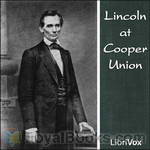 Lincoln at Cooper Union
Lincoln at Cooper Union
On 27 February 1860, Abraham Lincoln gave this address at the Cooper Union in New York City. When he gave the speech, Lincoln was considered by many to be just a country lawyer. After he gave the speech, he soon became his party’s nominee for president. | |
By: Andre Norton (1912-2005) | |
|---|---|
 Rebel Spurs
Rebel Spurs
In 1866, only men uprooted by war had reason to ride into Tubacca, Arizona, a nondescript town as shattered and anonymous as the veterans drifting through it. So when Drew Rennie, newly discharged from Forrest’s Confederate scouts, arrived leading everything he owned behind him—his thoroughbred stud Shiloh, a mare about to foal, and a mule—he knew his business would not be questioned. To anyone in Tubacca there could be only one extraordinary thing about Drew, and that he could not reveal: his name, Rennie... | |
 Ride Proud, Rebel!
Ride Proud, Rebel!
Drew Rennie, served as a cavalry scout in Confederate general John Hunt Morgan's command. He had left home in 1862 after a final break with his harsh grandfather, who despised him since his birth because of his mother's runaway marriage to a Texan. During the final year of conflict Drew has the additional responsibility of looking out for his headstrong fifteen-year-old cousin Boyd, who has run away from home to join Morgan's command and has a lot to learn in the school of hard knocks the army provides. The story follows the two of them and a new friend, Anson Kirby, through campaigns in Kentucky, Tennessee and later on deeper into the South, first with Morgan and later under Forrest. | |
By: George Eliot (1819-1880) | |
|---|---|
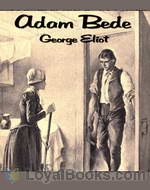 Adam Bede
Adam Bede
A young carpenter falls in love with the village beauty. She, however, has set her sights on a dashing army captain who's the son of the wealthy local squire. Meanwhile, a beautiful and virtuous young woman preacher arrives in the village. What happens to these people and the strange twists and turns that their lives take are described in the rest of the book. Adam Bede was George Eliot's first published novel. Published in 1859, the book has remained a firm favorite with readers and academicians alike and is still taught in many English literature courses all over the world... | |
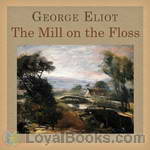 The Mill on the Floss
The Mill on the Floss
The novel details the lives of Tom and Maggie Tulliver, a brother and sister growing up on the river Floss near the village of St. Oggs, evidently in the 1820’s, after the Napoleonic Wars but prior to the first Reform Bill (1832). The novel spans a period of 10-15 years, from Tom and Maggie’s childhood up until their deaths in a flood on the Floss. The book is fictional autobiography in part, reflecting the disgrace that George Eliot (Mary Ann Evans) herself had while in a lengthy relationship with a married man, George Henry Lewes... | |
By: Charles Darwin (1809-1882) | |
|---|---|
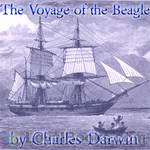 The Voyage of the Beagle
The Voyage of the Beagle
The book, also known as Darwin’s Journal of Researches, is a vivid and exciting travel memoir as well as a detailed scientific field journal covering biology, geology, and anthropology that demonstrates Darwin’s keen powers of observation, written at a time when Western Europeans were still discovering and exploring much of the rest of the world. Although Darwin revisited some areas during the expedition, for clarity the chapters of the book are ordered by reference to places and locations rather than chronologically. With hindsight, ideas which Darwin would later develop into his theory of evolution by natural selection are hinted at in his notes and in the book . | |
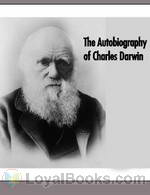 The Autobiography of Charles Darwin
The Autobiography of Charles Darwin
The Autobiography of Charles Darwin is the autobiography of the British naturalist Charles Darwin which was published in 1887, five years after his death. Darwin wrote the book, which he entitled Recollections of the Development of my Mind and Character, for his family. He states that he started writing it on about May 28, 1876 and had finished it by August 3. The book was edited by Charles Darwin’s son Francis Darwin, who removed several passages about Darwin’s critical views of God and Christianity... | |
By: Plato (428/427 BC - 348/347 BC) | |
|---|---|
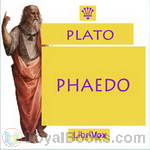 Phaedo
Phaedo
Plato's Phaedo is one of the great dialogues of his middle period, along with the Republic and the Symposium. The Phaedo, which depicts the death of Socrates, is also Plato's seventh and last dialogue to detail the philosopher's final days (the first six being Theaetetus, Euthyphro, Sophist, Statesman, Apology, and Crito).In the dialogue, Socrates discusses the nature of the afterlife on his last day before being executed by drinking hemlock. Socrates has been imprisoned and sentenced to death by an Athenian jury for not believing in the gods of the state and for corrupting the youth of the city... | |
By: James Fenimore Cooper (1789-1851) | |
|---|---|
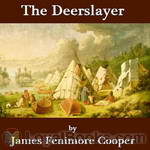 The Deerslayer
The Deerslayer
The Deerslayer, or The First Warpath (1841) was the last of James Fenimore Cooper’s Leatherstocking tales to be written. Its 1740-1745 time period makes it the first installment chronologically and in the lifetime of the hero of the Leatherstocking tales, Natty Bumppo. | |
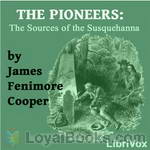 The Pioneers
The Pioneers
The Pioneers: The Sources of the Susquehanna; a Descriptive Tale is one of the Leatherstocking Tales, a series of five novels by American writer James Fenimore Cooper. The Pioneers was first of these books to be published (1823), but the period of time covered by the book (principally 1793) makes it the fourth chronologically. (The others are The Deerslayer, The Last of the Mohicans, The Pathfinder, and The Prairie.)The story takes place on the rapidly advancing frontier of New York State and features... | |
 Prairie - A Tale
Prairie - A Tale
The story opens with Ishmael, his family, Ellen and Abiram slowly making their way across the virgin prairies of the Midwest looking for a homestead, just two years after the Louisiana Purchase, and during the time of the Lewis and Clark Expedition. They meet the trapper (Natty Bumppo), who has left his home in New York state to find a place where he cannot hear the sound of people cutting down the forests. In the years between his other adventures and this novel, he tells us only that he has walked all the way to the Pacific Ocean and seen all the land between the coasts (a heroic feat, considering Lewis and Clark hadn’t yet completed the same trek). | |
By: Rafael Sabatini | |
|---|---|
 The Tavern Knight
The Tavern Knight
Follow the exploits of Sir Crispin Galliard, also known as The Tavern Knight, in his defence of the King of England against Cromwell and his Puritan Entourage. | |
By: Benjamin Franklin (1706-1790) | |
|---|---|
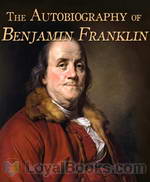 The Autobiography of Benjamin Franklin
The Autobiography of Benjamin Franklin
Inventor, author, printer, scientist, politician, diplomat—all these terms do not even begin to fully describe the amazing and multitalented, Benjamin Franklin who was of course also one of the Founding Fathers of America. At the age of 75, in 1771 he began work on what he called his Memoirs. He was still working on it when he died in 1790 and it was published posthumously, entitled An Autobiography of Benjamin Franklin. The book had a complicated and controversial publication history. Strangely enough, the first volume only was first published in French, in Paris in 1791... | |
By: Howard Pyle | |
|---|---|
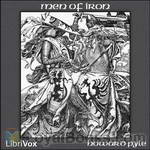 Men of Iron
Men of Iron
Men of Iron by Howard Pyle is historical fiction that transports us back to the 1400’s, a time of knighthood and chivalry. Myles Falworth is eight years old when news comes they must flee their home. His blind father is accused of treason. We see Myles grow up, train as a knight, and with perseverance, clear his father of any wrong-doing and restore their family name. | |
By: Andrew Lang | |
|---|---|
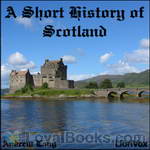 A Short History of Scotland
A Short History of Scotland
A Short History of Scotland is a consise introduction to the history of Scotland from Roman times to the last Jacobite rebellion, written by the author of a much longer Scottish history. | |
 Custom and Myth
Custom and Myth
CUSTOM AND MYTHINTRODUCTION.Though some of the essays in this volume have appeared in various serials, the majority of them were written expressly for their present purpose, and they are now arranged in a designed order. During some years of study of Greek, Indian, and savage mythologies, I have become more and more impressed with a sense of the inadequacy of the prevalent method of comparative mythology. That method is based on the belief that myths are the result of a disease of language, as the pearl is the result of a disease of the oyster... | |
By: Washington Irving (1783-1859) | |
|---|---|
 The Sketch Book of Geoffrey Crayon, Gent.
The Sketch Book of Geoffrey Crayon, Gent.
Apart from "Rip Van Winkle" and "The Legend of Sleepy Hollow" - the pieces which made both Irving and The Sketch Book famous - other tales include "Roscoe", "The Broken Heart", "The Art of Book-making", "A Royal Poet", "The Spectre Bridegroom", "Westminster Abbey", "Little Britain", and "John Bull". His stories were highly influenced by German folktales, with "The Legend of Sleepy Hollow" being inspired by a folktale recorded by Karl Musaus. Stories range from the maudlin (such as "The Wife" and... | |
By: Founding Fathers of the United States | |
|---|---|
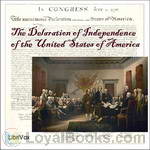 The Declaration of Independence of the United States of America
The Declaration of Independence of the United States of America
Declaration of Independence is the document in which the Thirteen Colonies declared themselves independent of the Kingdom of Great Britain and explained their justifications for doing so. It was ratified by the Continental Congress on July 4, 1776. | |
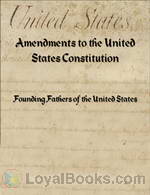 Bill of Rights & Amendments to the US Constitution
Bill of Rights & Amendments to the US Constitution
The Constitution has a total of 27 amendments. The first ten, collectively known as the Bill of Rights, were ratified simultaneously. The following seventeen were ratified separately. | |
By: Johanna Spyri (1827-1901) | |
|---|---|
 Heidi
Heidi
Filled with descriptions of the magnificent Swiss Alps, the lives of the simple country folk who live in their picturesque peaks and valleys and the gentle and innocent days of childhood, Heidi by Johanna Spyri is a book that no child should miss reading. Since it first came out, it has captured the hearts of children (and adults) all over the world, been extensively filmed, televised and staged and translated from the original German into more than 60 languages. Heidiland, a theme park, is one of the big attractions in Zurich... | |
 Heidi (version 2 dramatic reading)
Heidi (version 2 dramatic reading)
"Heidi" takes us on a journey to the eventful childhood of a good-hearted girl from the Swiss Alps. A warm and loving story, full of touching moments, it reaches children and adults alike. It was written in 1880 and published in two parts: 1. Heidi's years of learning and travel. 2. Heidi makes use of what she has learned. This English translation from 1915 has "an especial flavor, that very quality of delight in mountain scenes, in mountain people and in child life generally, which is one of the chief merits of the German original... | |
By: Robert Michael Ballantyne | |
|---|---|
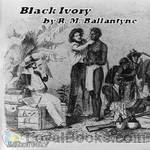 Black Ivory
Black Ivory
Although the book's title Black Ivory denotes dealing in the slave trade it is not our heroes who are doing it. At the very first chapter there is a shipwreck, which leaves the son of the charterer of the sinking ship, and a seaman friend of his, alone on the east coast of Africa, where Arab and Portuguese slave traders were still carrying out their evil trade, despite the great efforts of patrolling British warships to limit it and free the unfortunates whom they found being carried away in the Arab dhows... | |
By: Mary Roberts Rinehart (1876-1958) | |
|---|---|
 Tenting To-Night; A Chronicle Of Sport And Adventure In Glacier Park And The Cascade Mountains
Tenting To-Night; A Chronicle Of Sport And Adventure In Glacier Park And The Cascade Mountains
This is the second of two travelogues published by Mary Roberts Rinehart (1876-1958). Both deal with Glacier National Park, and this book also deals with the Cascade Mountains (The other is entitled Through Glacier Park). Rinehart wrote hundreds of short stories, poems, travelogues and articles, though she is most famous for her mystery stories. The region that became Glacier National Park was first inhabited by Native Americans and upon the arrival of European explorers, was dominated by the Blackfeet in the east and the Flathead in the western regions. | |
 Kings, Queens and Pawns: An American Woman at the Front
Kings, Queens and Pawns: An American Woman at the Front
A personal account of the American author's visit to Europe in January 1915 while a war correspondent in Belgium for The Saturday Evening Post. She writes: "War is not two great armies meeting in a clash and frenzy of battle. It is much more than that. War is a boy carried on a stretcher, looking up at God's blue sky with bewildered eyes that are soon to close; war is a woman carrying a child that has been wounded by a shell; war is spirited horses tied in burning buildings and waiting for death; war is the flower of a race, torn, battered, hungry, bleeding, up to its knees in icy water; war is an old woman burning a candle before the Mater Dolorosa for the son she has given... | |
By: Louis Aubrey Wood (1883-1955) | |
|---|---|
 Chronicles of Canada Volume 21 - The Red River Colony: A Chronicle of the Beginnings of Manitoba
Chronicles of Canada Volume 21 - The Red River Colony: A Chronicle of the Beginnings of Manitoba
This, volume 21 of the Chronicles of Canada series, describes the settlement of the Red River Colony by Lord Selkirk, and the struggles it had against the North-West Company. The fledgling settlement eventually became the city of Manitoba. | |
By: Agnes C. Laut | |
|---|---|
 Canada: the Empire of the North
Canada: the Empire of the North
CANADA, THE EMPIRE OF THE NORTHBy Agnes C. LautPREFACETo re-create the shadowy figures of the heroic past, to clothe the dead once more in flesh and blood, to set the puppets of the play in life's great dramas again upon the stage of action,--frankly, this may not be formal history, but it is what makes the past most real to the present day. Pictures of men and women, of moving throngs and heroic episodes, stick faster in the mind than lists of governors and arguments on treaties. Such pictures may not be history, but they breathe life into the skeletons of the past... | |
By: John Muir | |
|---|---|
 Travels in Alaska
Travels in Alaska
In 1879 John Muir went to Alaska for the first time. Its stupendous living glaciers aroused his unbounded interest, for they enabled him to verify his theories of glacial action. Again and again he returned to this continental laboratory of landscapes. The greatest of the tide-water glaciers appropriately commemorates his name. Upon this book of Alaska travels, all but finished before his unforeseen departure, John Muir expended the last months of his life. | |
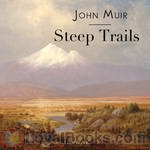 Steep Trails
Steep Trails
A collection of Muir's previously unpublished essays, released shortly after his death. "This volume will meet, in every way, the high expectations of Muir's readers. The recital of his experiences during a stormy night on the summit of Mount Shasta will take rank among the most thrilling of his records of adventure. His observations on the dead towns of Nevada, and on the Indians gathering their harvest of pine nuts, recall a phase of Western life that has left few traces in American literature... | |
By: Gustave Flaubert (1821-1880) | |
|---|---|
 Salammbô
Salammbô
After completing the famous Mme Bovary, Flaubert put all his efforts into researching the Punic Wars and completed the lesser known Salammbô. In this volume, Flaubert describes in detail the Mercenary Revolt and the fight of the Mercenaries against the all-powerful Carthage, the theft of the magical Zaimph and the love and hate between the Carthaginian princess Salammbô and the fiercest leader of the Mercenaries, Matho. | |